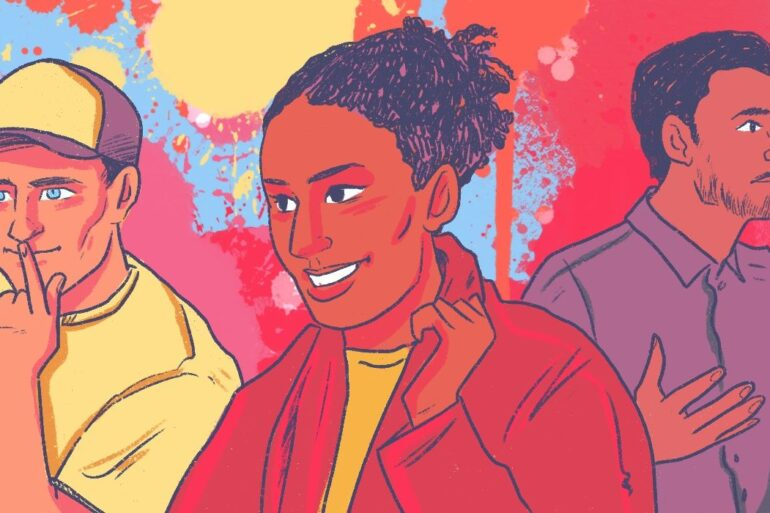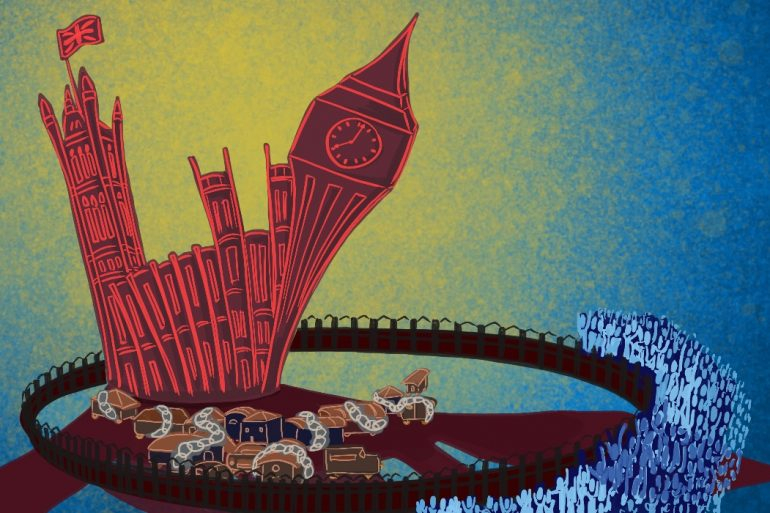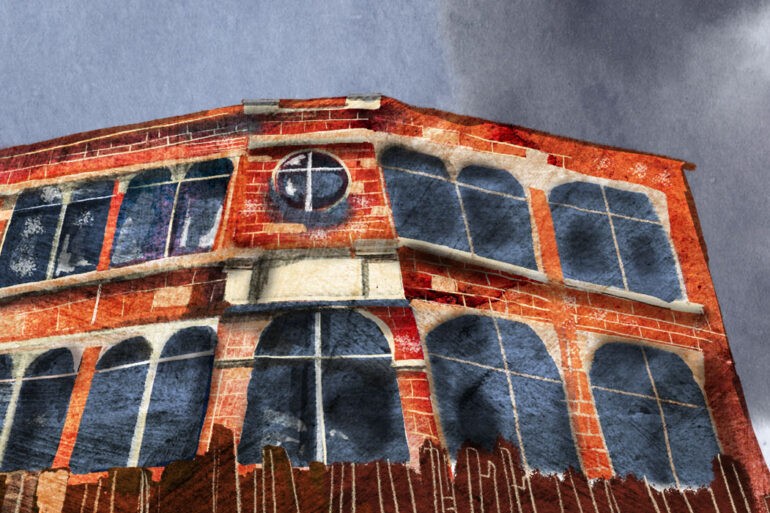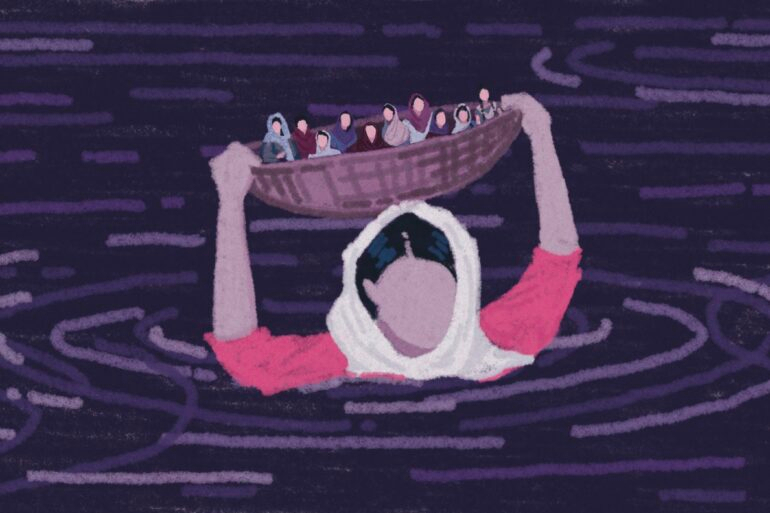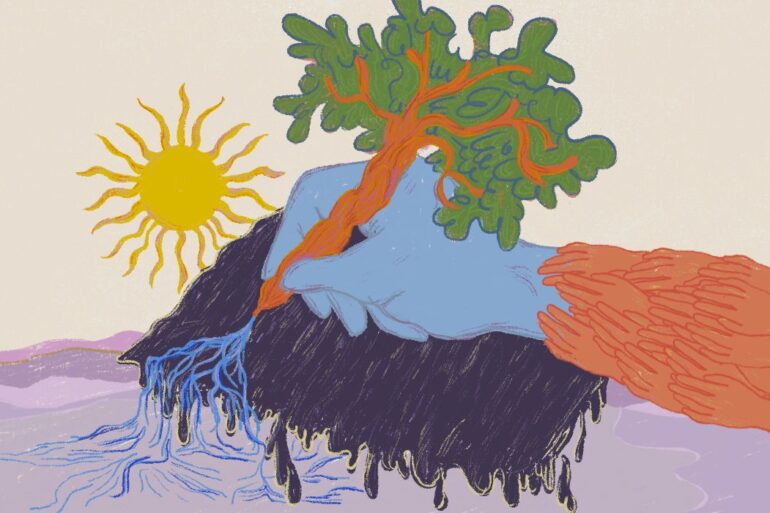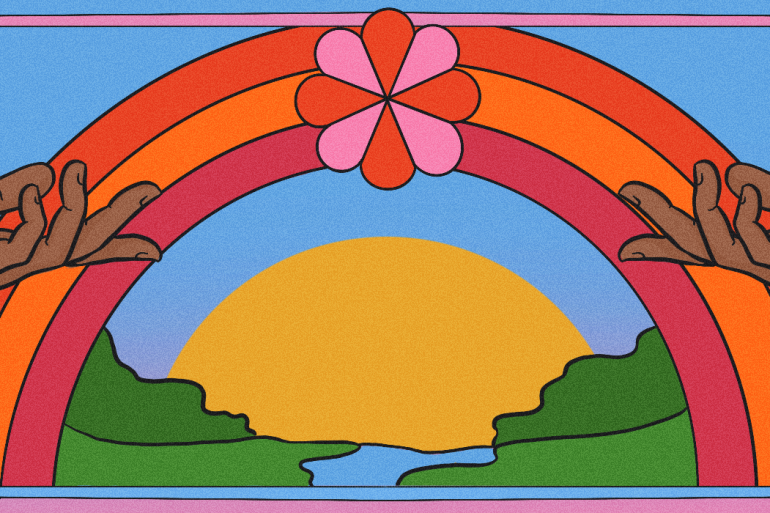Waad al-Kateab is a Syrian journalist and filmmaker known for her groundbreaking directorial debut For Sama, a documentary charting the situation in Syria from its initial conflict in 2011. Last week, Waad stepped into the reality of the pandemic and spent eight days filming inside a COVID-19 ward in Kent for Channel 4. Given her unparalleled experience filming over five years in hospitals targeted by bombs in Aleppo, Waad is remarkably well placed to take on the task of documenting the current situation in UK hospitals.
We wanted to talk further to Waad to learn more about her difficult decision to return to a hospital setting, how she grappled with the personal risks of being on the frontline, and the emotional toll of the inevitable contrasts to the healthcare workers fighting COVID-19 back home in Syria.

For many of us, the realities of COVID-19 and its implications took weeks to fully hit home. As someone who had lived through, and documented, the reality of Syria under siege, even Waad said she initially “couldn’t really process what was happening.” Unlike the visible implications of bombing and shelling, she “never expected to witness something like this virus – when you can’t really see it, you can’t really feel it but it still has a huge effect on all of our lives. There, you can see the blood and the injured people and the risk you are putting yourself in, while with COVID-19, you can’t see it physically.”
In terms of her motivations for wanting to take on this role, Waad explains that she “wanted to go there, see the situation and tell the truth of that experience of what it is like for doctors and patients” working on the frontline.
Documenting the hospital in Kent is the first time Waad has filmed since she left Syria. Waad explains the situation of being “in a hospital again, in totally different circumstances than in Syria, and not with the people that I know, was really hard emotionally.”
Her heart is with all of the people back home. “ I wish I could be in Syria now to see the situation there,” she says. “I wish I could see the doctors and nurses there, who have struggled so much through everything else, and in addition to that situation are now facing coronavirus.”
Witnessing the enormous emotional and physical strain that is currently faced by UK healthcare workers, Waad says it is particularly heartbreaking thinking of the healthcare workers in Syria who have already been working in extreme conditions since the conflict began nine years ago. “In addition to that, they now have a new challenge of fighting COVID-19.” In these times, Waad explains,
“I give all my respect to all the healthcare workers around the world – but I give all my love to the Syrian doctors who have faced so much and are now confronted with this”.
Those who have seen For Sama will know that Waad’s husband Hamza is one of the 13 doctors who risked their lives to stay in Aleppo and run its last remaining hospital. We asked whether he was able to work in the UK hospitals, a task for which he is eminently qualified. “Hamza wanted to take some time off from being a doctor until he had recovered a little bit from the trauma of working in Syria,” Waad explains, so he has not started the process of taking exams required for overseas doctors to work in the UK. “He now wishes he was able to help at the hospital.”
Along with the emotions entwined with returning to a hospital setting, Waad talks about the personal anxiety she felt while filming, both in terms of her personal safety but also in the risk she felt of “bringing the virus home” to her family.
“You have to focus on every step, every movement, everything you touch, how far you need to be from each person and each patient. You need to catch a good story, but you also need to protect yourself.”
As a journalist, storytelling is at the heart of Waad’s work. “I want to capture the environment and the community between doctors and nurses; how they deal with each other; how they challenge the situation; how they are trying to survive, day by day.
In particular Waad says she wanted to know how staff reconciled their work with the risk this posed to their families. “I felt I needed some answers before I went back home to see my family. I was constantly worried and needed to make sure I wasn’t bringing a virus home with me.”
While she learned that staff faced this same dilemma, they told her “that they don’t have another option. If they didn’t continue working and treating patients, then who could?”

There are glaring differences between Waad’s time filming in Aleppo and her current experiences in Kent – a crucial one being the perpetrator. One is a global virus which doesn’t see borders; the other is suffering caused by “a president who runs a dictatorship, who doesn’t care about his people and just wants to kill them all.” In Aleppo, she explains, “you can’t forget that you are fighting every second for your life; for freedom and dignity and your country. With the virus, you think more about personal issues, your family, your own issues and it’s a different kind of feeling knowing that it is a crisis which is not caused intentionally.”
There is, however, one prevailing similarity – “the amazing staff in the hospitals, doing incredible work and risking themselves, their lives and their families just to keep treating people.”
“I wish I could be with my people and in my country and I wish I could do more for the people that are still there in Syria, but I was really happy that I was able to tell another story from a place like this hospital and to meet all of the heroes working there.”
To find out how you can support the work being done by Waad and Hamza – head to actionforsama.com
Follow Waad on instagram a @waadalkateab


